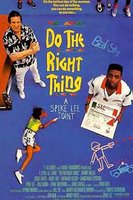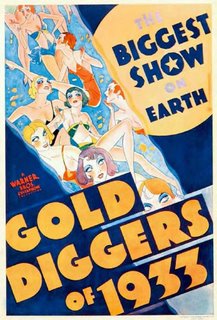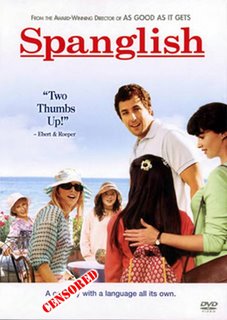
A while back, Stevo
posted on the joys of finding a surprisingly high-brow film column in an essentially nameless local advertising paper. Unfortunately, our experiences with media and pop-culture criticism can’t always be that enlightening – even when they do have a name and a
web site.
Firstly, so you don’t get the wrong idea here, this is not a film review. As per our
modus operandi, we focus on all aspects of pop-culture, including the actual criticism of it by fellow aficionados and professionals. Given this, we find it our responsibility to identify and mock heavily those who assume journalistic authority over a medium which they apparently despise and/or know little about. One of my favorite such self-proclaimed ‘critics’ is Eric D. Snider, who seems to be making a veritable career out of writing smug articles that reduce movies to either Laughs, Violence, Acting, or some other low-brow description for base entertainment. Such tourism cannot be left unchecked.
Secondly, I have not seen the film,
Inside Man. But, again, this is about the general level of criticism and not the film, right?
Right.
Snider begins his review by saying,
There is so little to "Inside Man" that it barely warrants a full-length review. It's a bank-robbery movie, and an entertaining one, but that's all it is.Stop. OK, so you are telling us – as a movie critic – that there is nothing to say about this film? As a thesis statement, this first line isn’t entirely unremarkable, as he pretty much supports it throughout the rest of the review by giving a patronizing synopsis with ‘snide’ interjections to humor it up a bit. Not bad if you are looking for post-modern ways of constructing your freshman term paper, but a film critic should have loads to say about any film (historical/social relevance and context, theoretical and formal analysis, etc.), after all, he’s the estimable critic, right? We could only presume.
Furthering this essentialism, he states,
[The film]
goes on a little too long -- it's directed by Spike Lee, who has never made a movie that didn't go on a little too long -- and then it ends.
‘Never.’ Spike Lee has directed over twenty films and several shows for television since the late seventies, and you mean to say that not one of those succinctly managed the time effectively? We are talking about Spike Lee and not Michael Bay, right? Has Snider seen every Spike Lee film so as to qualify him to make such a definitive statement? In my mind
4 Little Girls is the perfect documentary, weighing in at a slogging 102 minutes of captivating relevance, but I guess we can all just forget that one in the name of reductive absolutism.
With a screenplay by first-timer Russell Gewirtz, this is one of the few joints directed by Spike Lee that he did not write or co-write himself. Rest assured, there is still some of Lee's usual racial tension and sexism -- most of the women in the film are identified either by their breast size or their voracious sexual appetites –
Again with the blanket statements. But what I’m curious about is what he means by, ‘Lee’s usual racial tension and sexism.’ Of course we know that one of the common tropes in Lee’s work is race related, but is Snider claiming that he is sexist here as well? I misunderstand, since the dance scene / opening credits from
Do the Right Thing seem to indict the lustful viewer therefore empowering the black woman through her unabashedly sexual presence. The term ‘usual’ obviously excludes one of Lee’s most popular and critically acclaimed films. All of this isn’t to say that
Inside Man is a brilliant film without flaws, or that it doesn’t have sexist elements (I can’t say, having not seen the film), but only that Snider’s lazy tactics render his review and critical authority impotent.
The most interesting thing about this review is that the only analysis he performs is negative, which completely undermines his rather safe ‘B’ rating. I guess there are a lot of points given on the ‘entertainability’ of the overall synopsis, because his evidence certainly doesn’t support his results. Maybe this is just a pandering to the
general consensus that the film is fairly decent (i.e. doesn’t want to lose his audience when they notice that other critics gave the film a positive review). If only we could all get away with such critical doublethink.
[
Link to the full review]
-------------
Special FeaturesOther favorite lines from his review:
-
The robbers have done their homework. They know what the cops are going to try before they try it.Yeah, Emergency Response is so overrated and predictable; just like in
Heat, and
Le Samouraї, and
The Asphalt Jungle.
-
In [the film’s]
basic scenario, it resembles "Dog Day Afternoon" so much that one of the characters mentions it.In critical studies it’s often called intertextual reference; something that you praised
Kill Bill for.
Tagged under:
Film,
EntertainmentLabels: Critical Studies, Film, Reviews





















